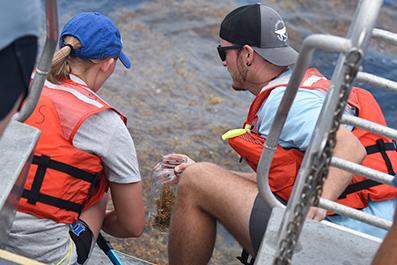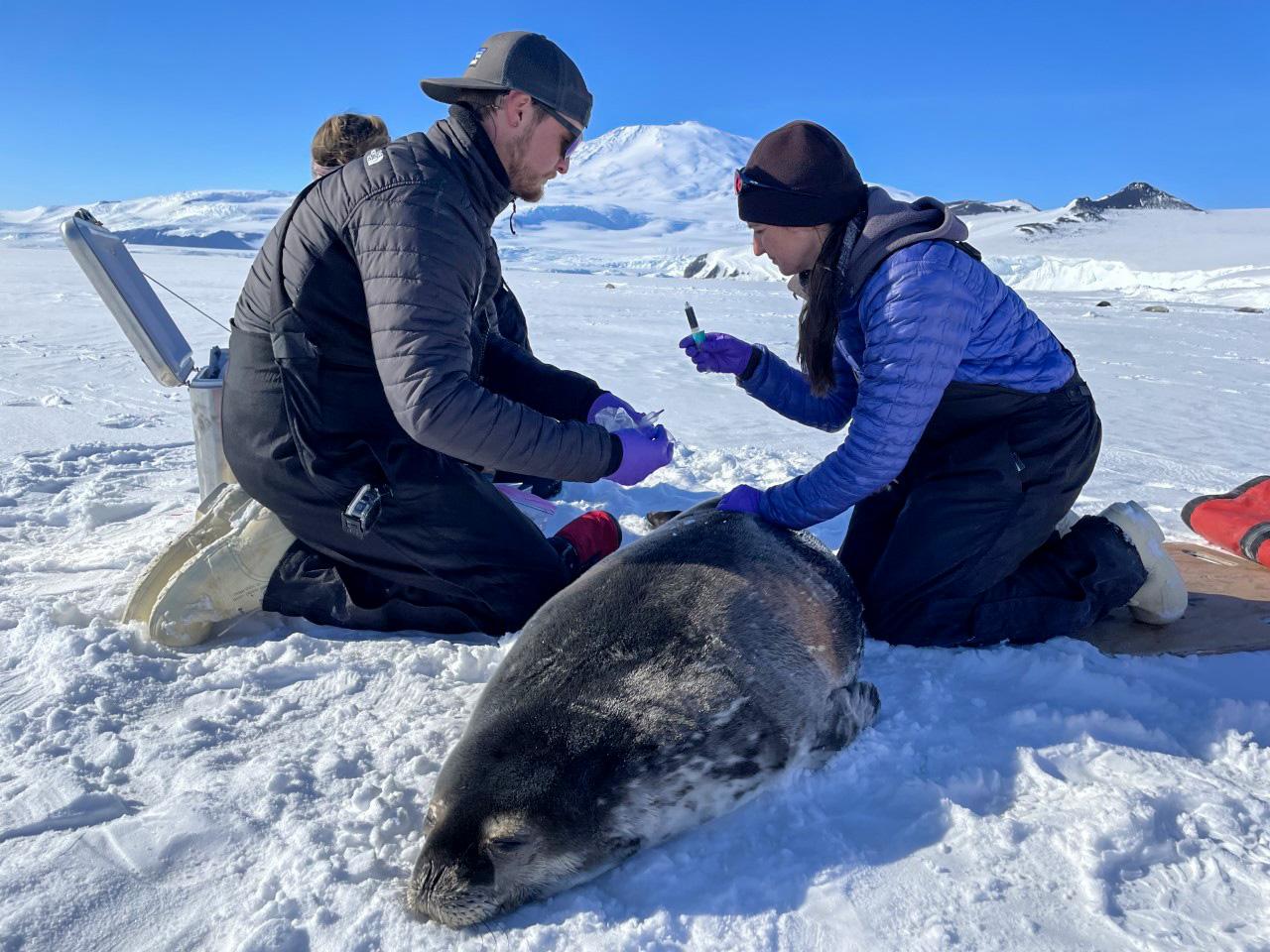Greg Merrill, a PhD student in the University Program in Ecology, recently shared insights into his research focus, the Nowacek Lab, the impacts of his research and what he has learned working in the lab.
Greg's faculty advisor is Doug Nowacek, and he is studying the impacts of plastic pollution on marine mammals.
What does your lab work look like?
“My time in the lab has varied over my program. One of my central questions was whether or not ingested microplastics move around the bodies of whales, a process called translocation. To do this I handled a lot of smelly dead whale tissues. As you can imagine, I wasn’t the fan favorite in the lab on those days. I’ve since shifted focus to understanding what the impacts of microplastics may be on marine mammal metabolism using cell lines we established from skin biopsies of dolphins and humpback whales. Ironically, tissue culture requires sterile technique, a plastic-intensive method. But on the plus side, it does not smell of rancid fish.
Apart from work in an actual lab, I try to spend as much time in the field at sea as possible. My physical 'lab' is the Duke Marine Lab’s 77-foot catamaran, the Research Vessel Shearwater. With over 75 days logged at sea across my program, I’ve had the privilege of traveling up and down the eastern seaboard between Virginia Beach, Virginia, and Jacksonville, Florida, in search of various dolphins and whales. The ride can sometimes be a bit bumpy and Dramamine a necessity, but nothing beats working with these animals and the incredibly talented teams and mentors that make the work possible.”
What big questions is your lab researching?
“Doug Nowacek’s lab has a handful of large projects. The lab tags critically endangered North Atlantic Right Whales to understand movement patterns along the east coast. It also collaboratively evaluates the impacts of mid-frequency active sonar used by the Navy on goose-beaked whales. Recently Doug was awarded a major grant to evaluate how the construction of offshore wind farms affects bats, birds, and whales, project WoW (Wildlife and Offshore Wind).”
What is your specific research focus?
“While I’ve occasionally participated in the field work of my advisor’s primary projects, my interests lie predominantly with the impacts of plastic pollution on marine mammals. I want to know if microplastics ingested by whales and seals simply travel along the GI tract and out of the animal on the back end or if they are internalized, moving around and depositing in various parts of the body. My work suggests that the ladder does in fact happen. So now I want to know what that means for the whales. What are the consequences, if any, of microplastic translocation on marine mammals? In order to answer this, I established cell lines from skin biopsies of living, wild, free-ranging dolphin and humpback whales and am exposing those cells to microplastics in vitro in the laboratory.”
What has been the most rewarding or enjoyable part of your research?
“The most rewarding part of my work is any moment I’m outside with these animals. I’ve had extreme flexibility to ask questions that interest me, work with a broad range of species, and often pursue unrelated side projects. These side-quests have afforded me a great deal of experiences and technical skills I would not have obtained from my work alone and I am grateful to have these skills in my toolbox so I can ask a wider array of questions throughout my career. For example, I recently returned from a three-month deployment to Antarctica where I worked on a project studying the reproductive physiology of Weddell seals. The daily commute from McMurdo station was either by helicopter or a snowmachine ride over the frozen Ross Sea at the base of a snow-covered Mt. Erebus, the world’s southernmost active volcano. I mean come on? If that wasn’t gratifying enough, we then got to handle the world’s southernmost marine mammal. These experiences have truly been a privilege."
What skills and knowledge have you gained from working in your Lab?
"I’ve learned a broad array of skills working through my degree. Several technical but many soft. How to navigate institutional hierarchies, securing research funding, communication in and out of the field, writing grants and manuscripts, cell culturing… Again, field work is my favorite: record keeping, biopsy sampling and photo identification of whales. I can’t overstate my appreciation for my field mentors; their expertise, patience, and generosity are beyond measure."





